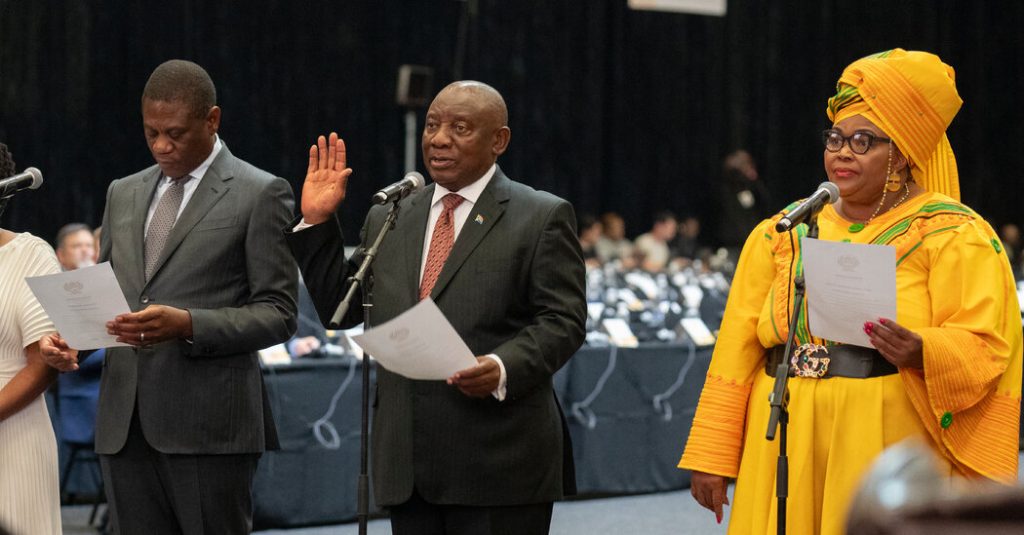South Africa’s newly elected Parliament has convened for the first time in a new era of unpredictable politics following national elections last month. The African National Congress (A.N.C.) formed a delicate alliance with rival parties to support Cyril Ramaphosa’s bid for a second term as president. Turbulent negotiations have characterized the post-election period, uncovering deep divisions within the A.N.C. and society at large. The A.N.C. took a significant hit in the election, winning only 40 percent of the vote, reflecting widespread dissatisfaction with the country’s economic challenges.
With its diminished majority in Parliament, the A.N.C. sought to create a government of national unity that would involve a broad spectrum of parties in governance. The goal was to address fears of potential political chaos due to the absence of a clear dominant party, a situation that has caused problems at the municipal level in the past. Despite efforts to forge unity, sharp divides emerged before Parliament’s opening, with new parties like uMkhonto weSizwe and the Economic Freedom Fighters presenting challenges to coalition-building. The former president, Jacob Zuma’s party, M.K., boycotted the opening of Parliament, alleging electoral fraud.
The Economic Freedom Fighters, a breakaway group from the A.N.C., rejected calls for a unity government, particularly one that involved the Democratic Alliance, a predominantly white-led party. The rejection was based on the party’s stance on issues like affirmative action and Black economic empowerment. Resistance to partnering with the Democratic Alliance also came from within the A.N.C., as some members feared the party’s policies could hinder progress in addressing apartheid-era disparities. The delicate balancing act by A.N.C. leaders aimed to avoid alienating Black voters while considering the potential economic benefits of working with the Democratic Alliance.
Despite initial reservations, the Democratic Alliance was one of the parties eager to join a unity coalition, fearing an A.N.C.-Economic Freedom Fighters alliance. A partnership with the Democratic Alliance was presented alongside Inkatha Freedom Party, known for its popularity among Zulu speakers and views on traditional leadership and land redistribution. Inkatha’s more conservative approach compared to other parties provided a symbolic opportunity for healing past wounds, particularly the violence between A.N.C. and Inkatha supporters in the apartheid era. The historical context of national unity, where the A.N.C. worked with the National Party, was invoked to justify current coalition-building efforts.
South Africa’s present challenges, including economic stagnation, high unemployment, and racial disparities, have created a complex political landscape that requires careful navigation. The government’s task is to address these issues while balancing competing interests and historical grievances. The need for unity and collaboration among political parties is underscored by the country’s fragmented political scene and the desire to move past historical divisions. As South Africa enters this new political phase, the success of the coalition government will depend on its ability to address the country’s pressing issues while reconciling the competing priorities of its diverse political partners.


